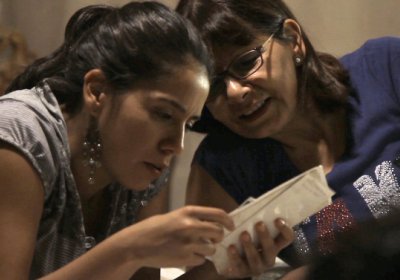Isaac Nellist spoke with Green Left's Latin American correspondent Ben Radford about various grassroots struggles against mining and climate destruction, for workers' rights and access to education.
Latin America
Federico Fuentes discusses contemporary politics in Latin America at the Socialist Alliance national conference on January 9.
Venezuela has hit back at the United States after it issued fresh threats to impose new sanctions against Venezuelan officials while attempting to derail the dialogue between Venezuela’s government and opposition.
A hydroelectric company that environmental activist Berta Caceres had fought, plotted with Honduran military and security forces to kill the Indigenous leader in March 2016, an independent commission has found.
The investigation was carried out by the International Group of Advisors and Expert Persons (GAIPE), comprised of several lawyers from Guatemala, Colombia, Holland and the United States. Its findings were based on dozens of interviews, court records and partial access to evidence provided by government investigators.
After a long battle, women will have the right to abortion for therapeutic reasons. Chile’s Constitutional Court announced a bill allowing abortion in such circumstances had been approved on August 21, despite pressure from conservative right-wing forces.
The Sydney Latin American Film Festival (SLAFF) is on again for the 12th year running. Featuring a specially curated program of captivating contemporary Latin American cinema, the festival has several films that progressive filmgoers won’t want to miss.
An important feature of this year’s program is that 50% of the films feature female directors, festival programmer Lidia Luna said.
While Adriana’s Pact director Lissette Orozco reflects on the role her aunt, Adriana Rivas, played during the Augusto Pinochet dictatorship, Roberto Calzadilla's El Amparo focuses on one of a number of state-sponsored massacres of civilians that occurred during the 1980s in Venezuela as a prelude to the bloodbath that would occur in the February 1989 Caracazo uprising.
A year on from the parliamentary coup that ousted former Brazilian President Dilma Rousseff, Brazil has become a neoliberal disaster and approval ratings for the incumbent right-wing government have slumped to record low levels.
The democratically-elected president was ousted in May last year without any proof of wrongdoing. Michel Temer, who then served as vice president, was installed as interim president. On August 31, Rousseff was formally removed from office.







